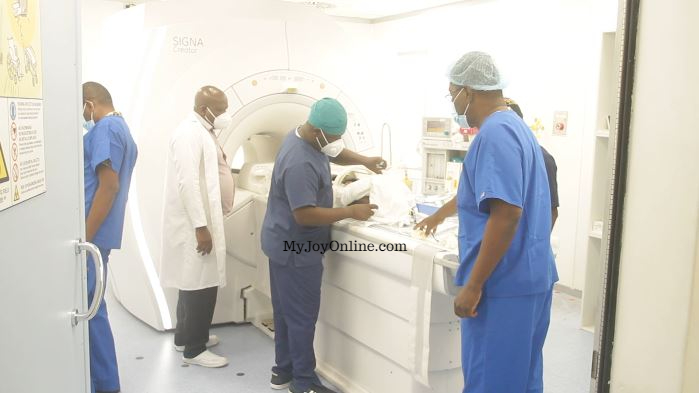World Health Organization (WHO) Representative to Ghana, Dr. Francis Chisaka Kasolo has called on WHO member states to invest substantially in healthcare workers to stop them from seeking greener pastures elsewhere.
Undoubtedly, he said Africa’s health workforce challenges, including shortages, unemployment, excessive outmigration, mal-distribution, unsatisfactory working conditions and inadequate workplace safety and protection, required a paradigm shift in investing better and smarter in the health workforce.
This would enable member states to attain universal health coverage and health security.
Dr. Kasolo made the call on Tuesday at a three-day Regional Policy Dialogue in Accra on Investment and Protection of Health and Care Workers in Africa, organised by WHO towards a Health Workforce Investment Charter.
Despite the increase in numbers of the healthcare workforce, he said there were also challenges with adequacy, equity, and quality of service, considering that Africa still had the lowest density of health workforce per 10,000 population with a projected 5.3 million health worker shortage by 2030.
The dialogue brought together WHO member States, sub-regional economic committees (AU, ECOWAS, West African Economic and Monetary Union, Southern African Development community, and Central African Economic and Monetary Community) and partners to share experiences on the health workforce investment and protection strategies implemented since 2018.
The platform was also used to explore innovative policy and investment options, collaborative partnerships and opportunities to support all countries to invest in the education, jobs, safeguarding and protection of their health workforce while working towards the launch of the new Working for Health 2022–2030 Action Plan and its mandate.
Dr. James Avoka Asamani, a Health Economist at WHO Regional Office for Africa said research in Ghana showed a 43 percent increase in the resignation rate of health workers in 2022 compared to 2018.
In Kenya, nearly 2000 nurses sought certificates of good standing to potentially migrate in the first five months of 2022, while more than 1,200 nurses resigned and potentially emigrated from Zimbabwe in 2021, a threefold increase compared to 2019, he said.
He said Africa had only three percent of the global workforce but 25 percent of disease burden and 70 percent of health emergencies.
Dr. Asamani said current output by the continent would reduce its health workforce shortage by only four percent in 2030, leaving a gap of 5.3 million by 2030.
He said an estimated 30 percent of trained health workers remained unemployed or underemployed in precarious jobs.
COVID-19, he said, had slowed down budgetary space in Africa and created great resignation and pandemic-driven demand in high-income countries, adding that the combined effect of those exacerbated migration of the African health workforce.
Deputy Minister of Health, Alhaji Mahama Asei Seini said in the commitment to achieving Universal Health Coverage by 2030, his Ministry recognised the need for highly skilled and capable health workforces across the country and had continuously developed and reviewed policies and strategies to guide the achievement of those goals.
The latest attempt, he said, was the comprehensive national policy and strategy for human resources for health service delivery, which outlined the different components needed to improve the production, training and retention of health workers to attain Sustainable Development Goals.
The Deputy Minister said the regional dialogue was timely as the discussions would feed into the technical workshop on the labour market analysis, scheduled for next week.
There could be no better time to invest in the health workforce because it would protect vulnerable populations from the shock of the current crisis and improve health access, Alhaji Seini said.
“We are extremely optimistic about the pragmatic solutions that would emanate from this dialogue as countries share experiences on what works, what doesn’t and we can all take home as lessons,” he said.
Latest Stories
-
Boost for education as government commissions 80 projects
6 mins -
NAPO commissions library to honour Atta-Mills’ memory
17 mins -
OmniBSIC Bank champions health and wellness with thriving community walk
18 mins -
Kora Wearables unveils Neo: The Ultimate Smartwatch for Ghana’s tech-savvy and health-conscious users
23 mins -
NDC supports Dampare’s ‘no guns at polling stations’ directive
25 mins -
Police officer interdicted after video of assault goes viral
43 mins -
KNUST’s Prof. Reginald Annan named first African recipient of World Cancer Research Fund
44 mins -
George Twum-Barimah-Adu pledges inclusive cabinet with Minority and Majority leaders
2 hours -
Labourer jailed 5 years for inflicting cutlass wounds on businessman
2 hours -
Parliament urged to fast-track passage of Road Traffic Amendment Bill
2 hours -
Mr Daniel Kofi Asante aka Electrician
2 hours -
Minerals Commission, Solidaridad unveils forum to tackle child labour in mining sector
2 hours -
Election 2024: Engagement with security services productive – NDC
2 hours -
Retain NPP for the good of Ghana – Rebecca Akufo-Addo
2 hours -
‘Let’s work together to improve sanitation, promote health outcome’ – Sector Minister urges
2 hours

